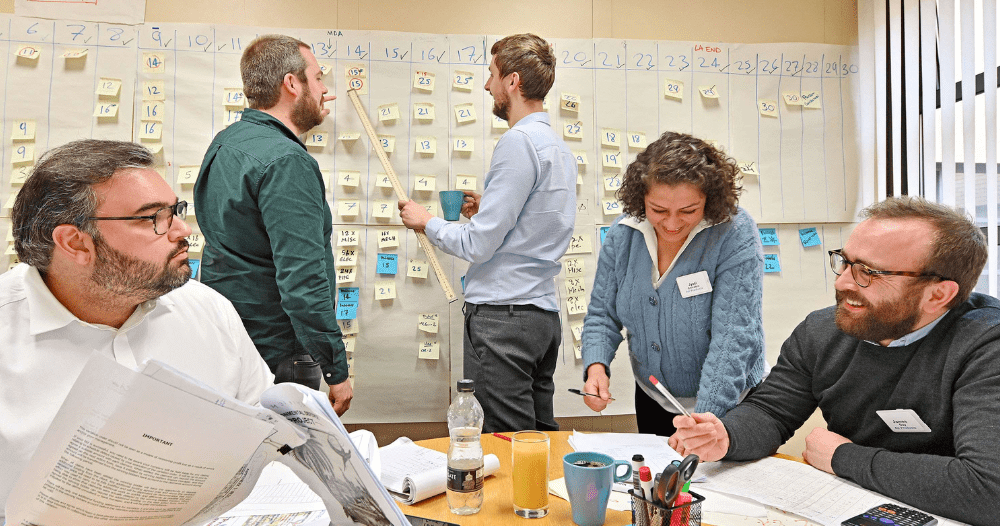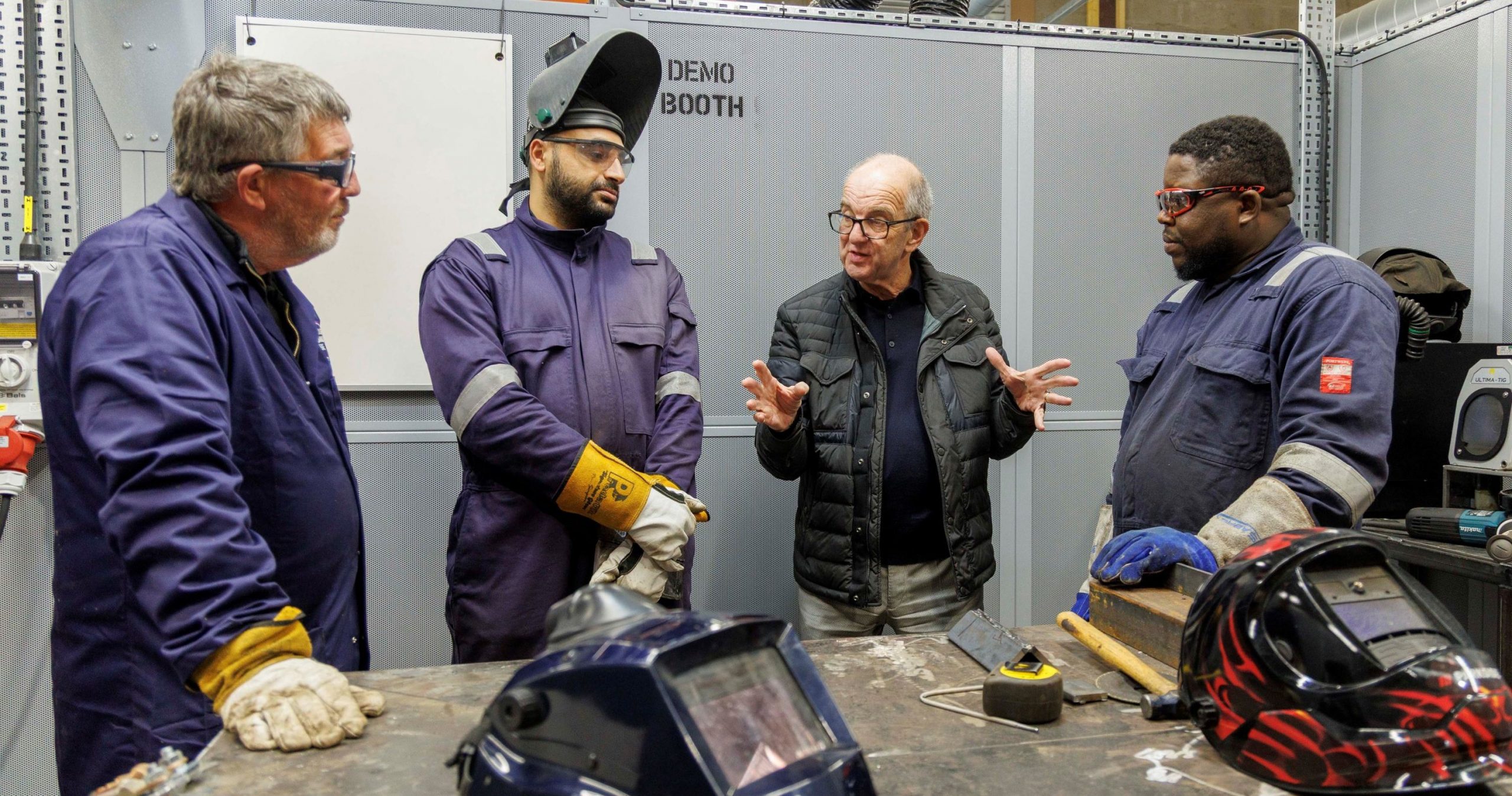
Government and industry need a better understanding of how skilled workers can move between sectors if the labour market is to make a full recovery from the impact of the Covid-19 pandemic, says leading skills body, the ECITB.
New research published today – Skills Transferability in the Engineering Construction Industry – sheds light on the similarities in skills and competences of engineers in the many sectors that support Britain’s energy and processing infrastructure, from renewables to oil and gas, nuclear and pharmaceuticals. It also identifies barriers to skills transferability, such as ingrained workplace attitudes and recruitment practices that compartmentalise trades and occupations unnecessarily and place unhelpful restriction on the mobility of workers.
With the most severe economic impact from Covid-19 felt in the oil and gas industry – a sector already under pressure – the ECITB asserts that with proper planning and coordination, the pandemic presents an opportunity to accelerate transition to a carbon-free economy. However, if we do not act quickly, we risk losing thousands of engineers who have the requisite skills to deliver decarbonisation. In response, the ECITB is calling on the UK, Welsh and Scottish governments to put in place measures to support the reskilling of oil and gas workers for jobs in other sectors and industries to support the transition away from fossil fuels.
This is imperative because the oil and gas sector has already shed 7,500 jobs with Oil and Gas UK predicting up to 30,000 job losses over the next 12-18 months. And forecasts show we could need at least 40,000 new workers with skills relevant to renewable energy, hydrogen fuel and carbon capture technologies to decarbonise the UK’s industrial clusters over the next decade. However, too few new skilled workers and young people entering the industry mean recruitment is insufficient to meet demand and there is a pressing need to re-skill and redeploy workers from other sectors.
Chris Claydon, Chief Executive of the ECITB, said: “Before the pandemic hit, the UK’s engineering construction industry faced persistent skills shortages and despite the economic downturn and current pressures, our expectation is that overall workforce demand will continue to exceed supply over the coming decades.
“While skills transferability is pursued to a limited extent through the UK Government’s National Retraining Scheme, with careful planning and greater focus on sectoral needs, many highly skilled roles that are transferable across engineering construction sectors could be more easily moved.
“Economic pressures from Covid-19 and oil price depression could see the UK haemorrhage skilled workers. The government needs to act quickly on this dual opportunity to deliver against our net zero commitment and prevent lasting unemployment in our industrial heartlands.”

The report recommends:
- An industry-wide mapping exercise to catalogue skills sets and occupations in the ECI with transferable skills requirements and to identify which occupations and skills will be in greater or lesser demand in the future;
- Development of a guide for employers on the benefits of skills transferability to inform their recruitment processes.
- Creation of sector specific skills passports, such as a single energy sector skills passport that demonstrates competence assurance for an individual. This should be based on the ECITB’s Connected Competence model.
- A promotional campaign targeting potential transferees already working in the industry for roles in growing sectors and industrial decarbonisation projects.
- Educational programmes to equip young people with a breadth of skills and a mind-set that allows for flexibility.
- The Government should dedicate funding earmarked for the National Skills Fund to support adults and young people to gain transferable skills.
- The Construction Talent Retention Scheme should incorporate reskilling and retraining interventions to ensure that workers are occupationally competent and can transfer easily into new roles
The research, carried out on behalf of the ECITB by Pye Tait consulting, comprised desk research and interviews with 30 employers, 13 stakeholders and five recruitment agencies as well as a workshop with the Nuclear Skills Strategy Group (NSSG).
Read the report in full below.
Notes for editors
About the Engineering Construction Industry
Engineering construction is a specialised industry that underpins the delivery, maintenance and decommissioning of the UK’s critical infrastructure. It operates across the oil and gas, nuclear and renewables sectors, as well as major process industries, such as chemicals, pharmaceuticals, food processing, water and waste treatment.
The engineering construction industry (ECI) is the cornerstone of Britain’s energy and process industries. ECI companies design, engineer, construct and decommission some of the biggest infrastructure projects in the country and overseas – and they will be central to delivering net zero.
Engineering construction operates across the oil and gas, nuclear and renewables sectors, as well as major process industries, such as chemicals, pharmaceuticals, food processing, water and waste treatment. Around 190,000 jobs are directly supported by engineering construction.
The complexity of this situation has been significantly increased by the Covid-19 pandemic. Overall trends suggest sectors involved in renewable energy or the provision of net-zero services will experience increased demand, while the oil and gas sector in particular will see a fairly large but gradual reduction in employment in the short term offset to some extent by a shift to energy transition projects and decommissioning projects in the medium to longer term.
About the ECITB
The Engineering Construction Industry Training Board (ECITB) is the statutory skills body for the Engineering Construction Industry (ECI) in Great Britain. A non-departmental public body (NDPB) sponsored by the Department for Education, the ECITB works with employers and government to attract, develop and qualify personnel across a wide range of craft, technical and managerial disciplines. Last year, the ECITB invested more than £20 million to support skills development within the engineering construction industry.
For more information visit www.ecitb.org.uk
For media enquiries contact:
Tom Shipp, Media and Strategic Communications Manager, via tom.shipp@ecitb.org.uk or call 07834 241185.





